News
Launch of Compassionate Inverclyde
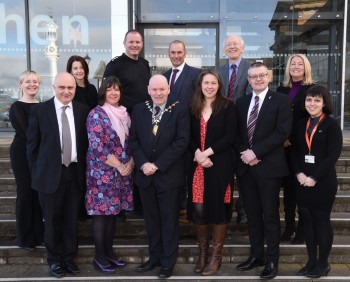
A new public health approach to palliative care is being launched in Inverclyde.
‘Compassionate Inverclyde’ aims to enable and empower people to help and support one another at times of increased health need, crisis and bereavement.
The new approach is based on the recognition that dying, death and bereavement are inevitable parts of human experience and not the sole responsibility of health professionals.
The new compassionate Inverclyde project was launched on 1st March by Aileen Campbell, Minister for Public Health and Sport and Inverclyde Provost Robert Moran.
Public Health Minister Aileen Campbell said: “The Compassionate Inverclyde project highlights the benefits of empowering people to help and support each other at times of increased health need and in bereavement, recognising the importance of families and communities working alongside formal services to support those who need it most.
“Working with and building on the strengths of our communities through projects such as Compassionate Inverclyde will play a vital part in achieving our vision of ensuring that everyone in Scotland can access the care and support that is right for them at the end of their lives.”
Ian Marshall, Ardgowan Hospice Acting Chief Executive said, “Ardgowan Hospice has been supporting people living with life limiting illness for over 35 years so we know the challenges and the difficult journeys people face. That is why it is so important that we are part of this new network of national, regional and local organisations and people working together through community action, good practice, research and policy, to ensure that everyone who is facing challenges associated with the end of life is offered the support they need.”
Speaking at the launch Inverclyde Council Provost Robert Moran said: “The principles of Compassionate Inverclyde are in line with our 'nurturing Inverclyde' approach. This aims to make Inverclyde a place which nurtures citizens of all ages. Our aim of ensuring that everyone has the opportunity to have a good quality of life and good mental and physical well-being is as important at the end of life as it is at the beginning. “
The programme for the launch included a moving drama titled ‘Say it like it is’ performed by Harry Connor and John Morrison which highlights the issues are death and dying.
Compassionate Inverclyde builds on the international movement to develop ‘compassionate communities’ to provide support to someone who is experiencing a crisis, loss or is at the end of life.
People in a compassionate community help care for each other through small acts of kindness and do not think it’s the sole responsibility of health professionals.
Partners, including Ardgowan Hospice and Inverclyde Health and Social Care Partnership are developing a public health approach to palliative care called Compassionate Inverclyde.
This programme aims to raise awareness about death, dying loss and care. It also seeks to enlist communities in caring for their own family, friends, neighbours and strangers at the end of life at home or in hospital through local volunteers known as ‘compassionate citizens’.
What next for public health palliative care in Scotland?
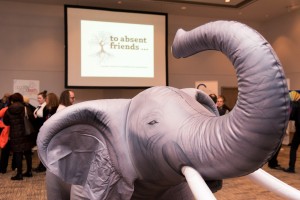
The Good Life, Good Death, Good Grief stakeholder group has produced a discussion paper entitled What next for public health palliative care in Scotland? The paper:
- Takes stock of previous and ongoing work in this area in Scotland.
- Explores potential future work that can usefully be taken at a national level to promote more cultural openness about death, dying and bereavement in Scotland.
The full paper can be downloaded here: What next for public health palliative care in Scotland?
Launch of Sue Ryder online community
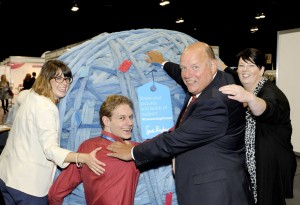
While grief is the inevitable result of a loved one dying, when you find yourself in that situation it can be a very isolating and difficult place to be. Sue Ryder's Online Community and Support for people who are dying aims to help.
While it was originally designed primarily to give support and advice to people facing the end of life and their families, it has now become a significant support for people dealing with, and in some cases struggling with, bereavement.

Indeed, our research shows that people who have someone to talk to during bereavement come to terms with the loss of their loved one around nine months earlier than those with no support.*
As the community has grown, it’s become clear there’s a real need for people to have a space to share experiences and feelings, to vent, to support each other, to cry for help and to reflect on progress they’ve made.

It’s a really interesting place and has been adapted as time has gone along: originally we had palliative care nurses on hand to support people online, now we have bereavement counsellors.
Last month we took our #connectingthread ball of wool, symbolising the Sue Ryder Online Community and Support, to SNP conference to share this increasingly popular tool with as many people as possible.

And what struck me was that when people came over to find out what on earth our big ball of wool was about, a constant flow of stories emerged about how death and grief had affected them, or how they knew someone currently caring for someone who was dying or who had recently lost someone. It seemed that so many people had relatively recent experience of death, yet in our every day conversations this very rarely comes up. And this means that people often end up keeping memories of their loved ones to themselves, trying to deal with grief on their own.
-300.jpg)
I can talk from my own experience having recently lost my 97 year old Nan. While we were prepared for her death, I still felt a great deal of sadness. But when the family got together following her funeral and shared stories – some extremely old – it was a really positive experience. It brought us together to remember her as a person who lived a very varied life, much of which I had no clue about until we all got together. For me, this is a first step in the grieving process.
There is no doubt that we do not talk enough about dying and death in our culture; it’s something we do our very best to ignore. So it’s no wonder then, when the inevitable happens and someone we care for dies, many of us struggle and feel entirely alone.
The Sue Ryder Online Community and Support is one small piece of the jigsaw that can help people through this time, but what we really need is a change in our culture where we can talk openly about death and the people we’ve loved and lost.
*Research was conducted in 2015 through Census Wide, with 2053 respondents participating in the survey.
This blog was written by Elinor Jayne, Policy and Public Affairs Manager - Scotland, Sue Ryder.
Parliament hosts discussions on attitudes to death
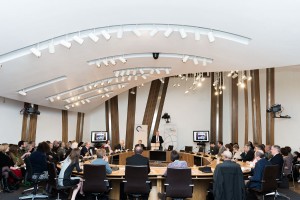
What can be done to encourage more open and supportive attitudes and behaviour relating to death, dying and bereavement in Scotland?
The next meeting of the Cross Party Group in the Scottish Parliament on Palliative Care plans to address this question at its next meeting.
There will be a series of short presentations from different perspectives, looking at what can be learnt from work already underway in this field, and exploring potential useful areas and approaches for future work. Presentations will be followed by an opportunity for group discussion.
The meeting will take place on Wednesday 14 December in Committee Room 5 of the Scottish Parliament, beginning at 5.45pm. Please get in touch with Pauline to request a place at the meeting.
death on the fringe 2016
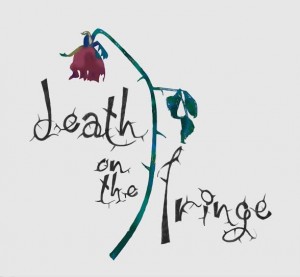
The world's biggest arts festival, the Edinburgh Festival Fringe, kicks off this week, and this year, as for a few years now, it will feature a series of shows and events looking at death and dying – Death on the Fringe.
This festival-within-a-festival is part of the ongoing charity-led initiative, Good Life, Good Death, Good Grief, which works to promote more openness about death, dying and bereavement. The aim is to make people aware of ways to live with death, dying and bereavement and help them feel better equipped to support each other through those difficult times.
Death is never the easiest thing to talk about, but it's so important to discuss it with friends and family before it's too late. What do you want to happen after you die? Have you made a will? Have you thought about your funeral? What about if you become terminally ill? Hopefully, Death on the Fringe is a way to kickstart those conversations in an entertaining and understanding way. And what better place to discuss the issue than at the world's biggest arts festival?

Events at Death on the Fringe range from the deadly serious to the lethally funny, but they all share the common feature of making audiences think about what it means to live well and die well.
For a start, Death on the Fringe provides a fantastic opportunity to hear leading academics and healthcare practitioners share their expertise. For those who've ever wondered about near-death experiences or death bed visions, Professor Allan Kellehear of Bradford University will be evaluating the explanations given for them in his lecture Mystical Experiences At The End Of Life – Really? Meanwhile, Dr Sally Paul of Strathclyde University will be asking the question What Happens To Dead People's Bodies? and discussing how we answer that question when children ask it. Edinburgh University's Professor Scott Murray will also be asking difficult questions – when, where and how you would like to die? – in his lecture Bringing Death Back To Life.
But beyond the lecture series, there are a whole variety of performances, from the astonishing real life tale of a body washed ashore in Sligo in Ireland, A Dream of Dying, to Melbourne comedian Lana Schwarcz's show about surviving breast cancer, Lovely Lady Lump.

TV doctor and comedian, Phil Hammond, will be reflecting on life, the death of two dads, and his still sprightly mother in his show, Life and Death (But Mainly Death), which runs throughout the Fringe, as does his discussion piece Dr Phil's NHS Revolution, for which he's joined by Glasgow Dr Margaret McCartney.
There's a musical show transferring from New York called Dark Heart, about the effect the accidental death of a sister has on a young woman's mental health. The manager of an award-winning burial ground, Liz Rothschild, will be providing food for thought in a show about her experiences, Outside The Box, and Dundee-based writer, Eddie Small, will also be playing a funeral director, discussing the lives and deaths of two corpses in his parlour, in The Death Pantomime.
The Fringe is all about entertainment, of course, but it is also about getting people to think and challenge themselves with different perspectives. Death on the Fringe does exactly that with a topic we all have to face.
Death on the Fringe 2016 runs from August 5-28.
For the full programme, see www.deathonthefringe.org.uk or follow @DeathOnFringe on Twitter.